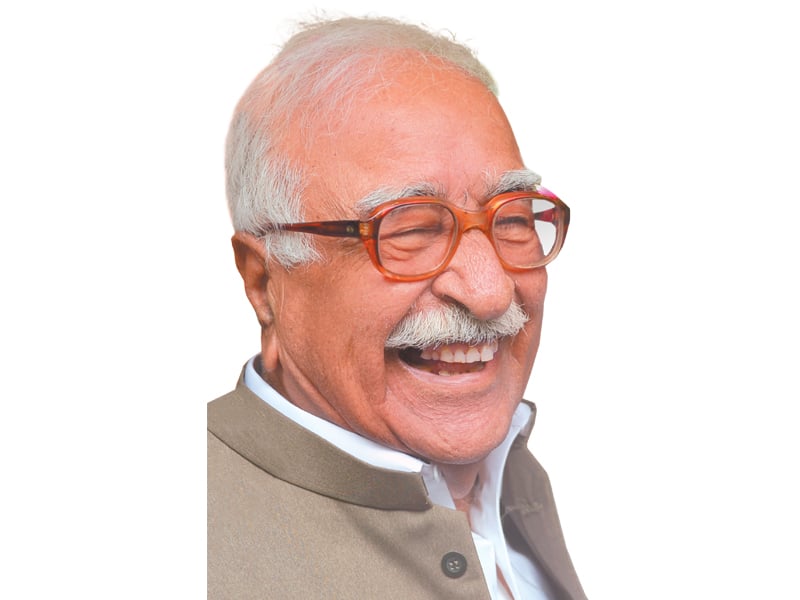
The selection of Justice (retd) Mir Hazar Khan Khoso, 84, came a week after the National Assembly was dissolved and four days after President Asif Ali Zardari announced that the general election would be held on May 11.
Justice Khoso was selected by a majority vote as four out of five ECP members voted in his favour. Justice Khoso — a Pakistan Peoples Party nominee — was one of the four choices put before an eight-member parliamentary committee which floundered in its quest despite three days of deliberations.
Earlier, the outgoing PPP government proposed Justice Mir Hazar Khoso and former State Bank governor Dr Ishrat Husain, while the main opposition Pakistan Muslim League-Nawaz suggested the names of Justice (retd) Nasir Aslam Zahid and Sindhi nationalist leader Rasool Bux Palijo.

In its first meeting on Saturday, the commission narrowed down the choice to two candidates: Justice Khoso and Justice (retd) Nasir Aslam. On Sunday, the two names were put to vote, and all but the ECP member from Punjab, Justice (retd) Riaz Kiani, voted for Justice Khoso.
“We have picked Mir Hazar Khan Khoso after frankly and openly discussing all the four names forwarded to us [by the parliamentary committee],” Chief Election Commissioner Fakhruddin G Ebrahim told journalists after the ECP meeting.
All five members of the commission – Justice (retd) Roshan Essani (Sindh), Justice (retd) Riaz Kiani (Punjab), Justice (retd) Shahzad Akbar Khan (Khyber-Pakhtunkhwa), Justice (retd) Fazalur Rehman (Balochistan) and CEC Ebrahim – attended the meeting, though Justice Essani could not turn up for Saturday’s session. ECP Secretary Ishtiaq Ahmed Khan and other officials of the commission were also present. Insiders said the ECP officials pored over all the names, particularly in the context of objections raised against them either by the outgoing government or the opposition. In the end, Justice Khoso was picked out because there were fewer objections against him. Sources also pointed out that Justice Khoso had an edge over other contenders because he came from the backward province of Balochistan. His uprightness and credibility as a judge also figured high.
In a brief comment after his nomination, Justice Khoso promised to remain neutral during the electoral process. “Free and fair elections will be my first priority,” he told journalists and reassured the nation that the elections would be held on time.
“The caretaker cabinet will be small, with 12-13 members,” he said when asked about his tentative team. He also said that it was the responsibility of provincial administrations to maintain law and order during the election in their respective provinces. However, he added that the central administration would cooperate with them in ensuring peace.
All mainstream political parties, including PML-Q, PPP, PML-N, JUI-F and PTI, welcomed the nomination of Justice Khoso who said that he would meet leaders of all political groups to discuss election-related issues.
Justice Khosa will take oath of his office on Monday at a ceremony to be held at the Presidency and will shift to the Prime Minister House the same day, according to the spokesperson for the Prime Minister Secretariat, Shafqat Jalil.
Constitutionally, the leader of the house and leader of the opposition select a caretaker prime minister with consensus within three days after the dissolution of the National Assembly. If they fail to agree on a name, a parliamentary committee – comprising four members each from the outgoing government and opposition – is assigned the task. And it, too, fails to evolve consensus, the selection of interim premier becomes the prerogative of the ECP.
Published in The Express Tribune, March 25th, 2013.



1731570357-0/elon-musk-(1)1731570357-0-165x106.webp)
-(1)1717678110-0/Kendrick-(1)-(1)1717678110-0-165x106.webp)












COMMENTS
Comments are moderated and generally will be posted if they are on-topic and not abusive.
For more information, please see our Comments FAQ